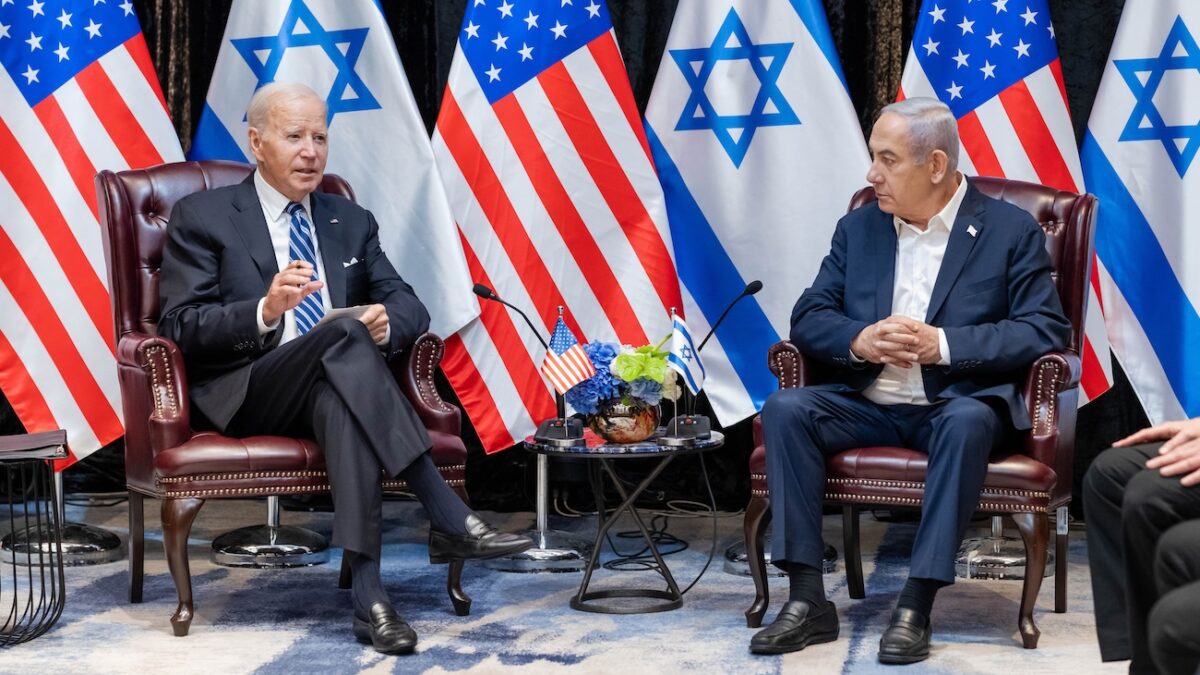
The Trump administration’s rhetoric about North Korea is sounding “eerily and increasingly” like the rhetoric that the George W. Bush administration used in the run-up to the Iraq war.
The U.S. Army has begun training thousands of soldiers in how to engage in tunnel warfare, in preparation for the honeycomb of tunnels and bunkers that dot the North Korean countryside. In October, the Pentagon sent a letter to Congress outlining what would be at stake for U.S. forces in the event of a ground invasion on the Korean peninsula.
The North Korean question is very much on the minds of the Trump administration. The Joint Chiefs of Staff are reportedly “particularly focused” on the North Korean threat, and Defense Secretary Jim Mattis has highlighted the need to “ensure that we have military options that our president can employ if needed.” Trump’s national security advisor, H.R. McMaster, went one step further, telling the nation that “preventative war” against North Korea may indeed be in the offing.
That a war with North Korea would be horrific is without question. War is hell, as William Tecumseh Sherman was fond of saying, and modern warfare is certainly no exception, particularly given the threat of a nuclear attack. It is partially for this reason that America’s founders made extra attempts to ensure the president could not wage war on his own, without the consent of Congress. While Article II of the Constitution makes the president the commander-in-chief, and later laws give him the authority to repel sudden attacks, it does not afford him the power to declare war. That role solely resides with Congress.
Congress Needs to Do Its Job
Even Alexander Hamilton, who favored a strong executive, emphasized in Federalist 69 that the president lacked the power to unilaterally take the nation to war. Likewise, President James Madison, in the run-up to the War of 1812, called going to war a question “which the Constitution wisely confides to the Legislative Department of the Government.”
While the constitutional war-making authority may reside with Congress, whether they want it to or not is another question. Congress has ceded much of its constitutional authority over negotiating our active military defense, but when it comes down to it, Congress has nearly always stood up and been counted on the issue of declaring war.
In his recent book, “Waging War,” legal expert David Barron found that Congress has specifically authorized almost every substantial foreign war the United States has waged, from the Quasi-War waged against France in the late 1700s to the war against al-Qaeda in 2001.
The Korean War, ironically, is the one unconstitutional exception Barron identifies. In 1950, President Truman sent U.S. troops into the region to defend South Korea from attack. After early victories, the intervention went poorly. China attacked suddenly, driving U.S. forces back below the 38th parallel. It took two more years of bloody stalemate, 37,000 American lives, and nearly 800,000 Korean lives to stabilize the two Koreas.
Truman did this without explaining to the American people what his military aims were — and by circumventing the constitutional requirement that Congress declare war. His mistake, notes law professor Garrett Epps, “helped produce the unstable peninsula that today threatens to spark the world’s first two-sided nuclear war.”
We Shouldn’t Do That Again
There is no reason that Trump must repeat Truman’s error, or that Congress should let him. This is for their own sake as much as anyone’s. Wars quickly become unpopular. In 1950, 78 percent of Americans said they approved of Truman’s decision to send ground troops to Korea. A year later, support had largely eroded.
As popular support wanes, so, too, does Congress’ capital, willingness, and ability to take action on key agenda items. The Korean War tarnished the personal reputations of both Truman and Gen. Douglas MacArthur.
In placing the war-making obligation on Congress, the Constitution checks the rush to war. It is intended to provoke deliberate public decision making that engages a country’s citizens, instead of keeping them in the dark. The Constitution makes the burden of war a shared and purposeful task.
Georgetown law professor Martin Lederman characterized it thusly: “No one individual, let alone the one presently in the West Wing, should be afforded the unilateral power to so radically transform the world.” Whether they like it or not, this is a question with which Congress has no choice but to grapple. The Constitution compels it. The people should demand it. The country deserves it.









